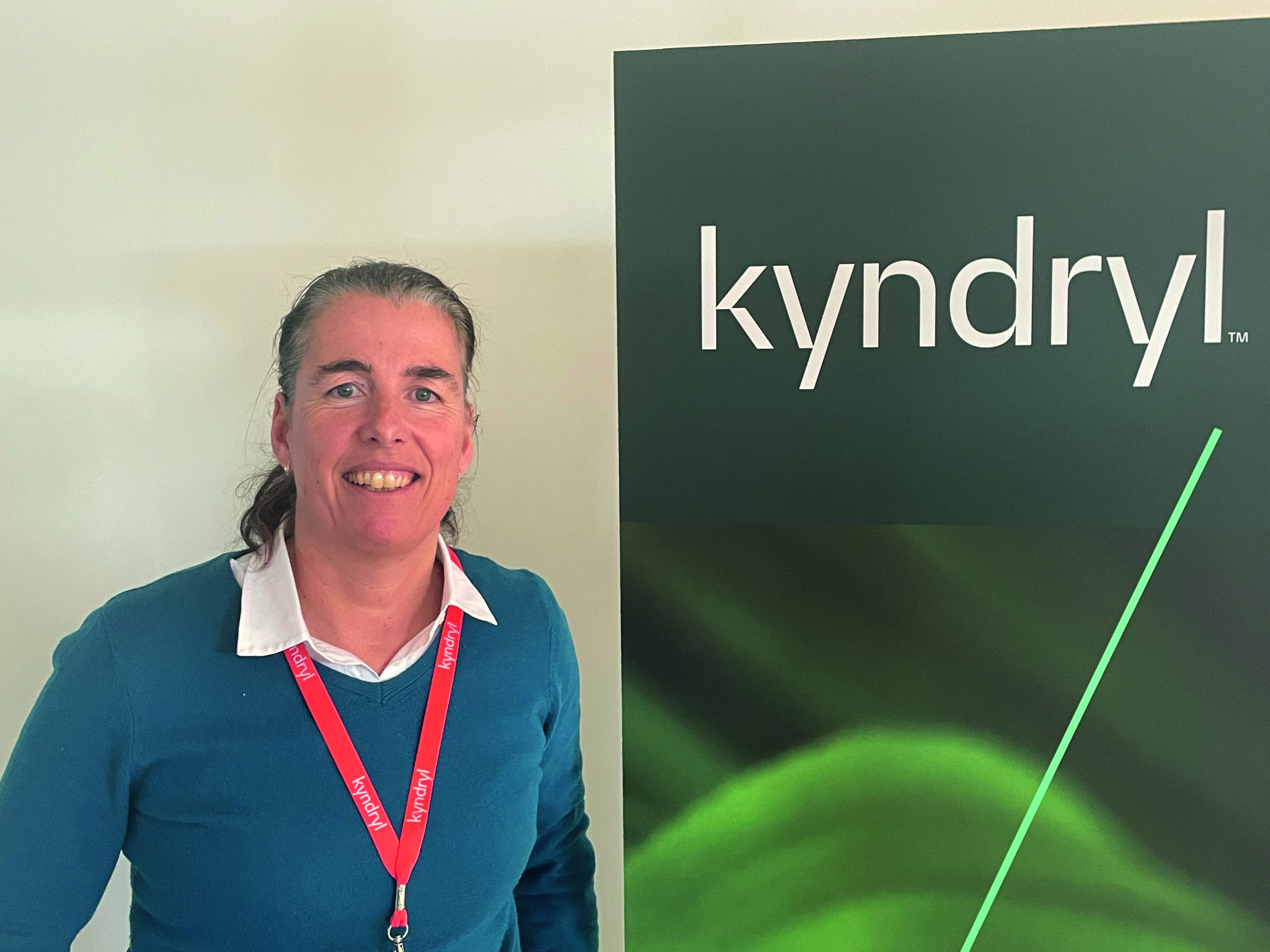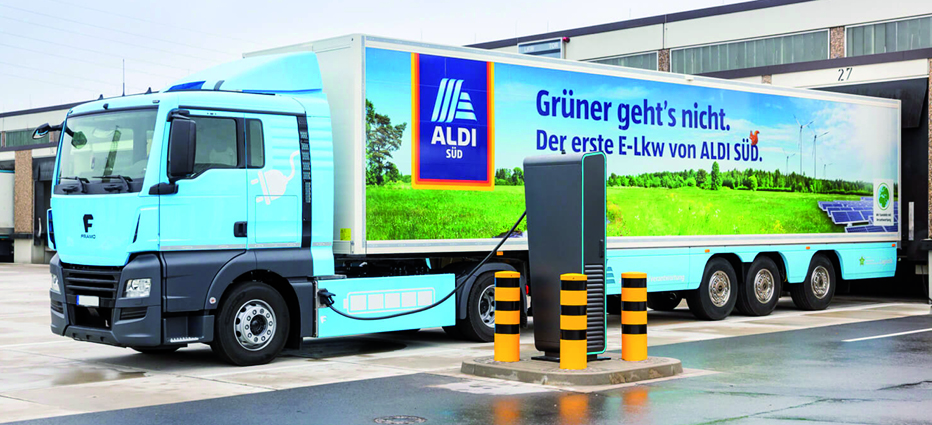 Michaela Fleischer, Business Development Executive Automotive bei Kyndryl
Michaela Fleischer, Business Development Executive Automotive bei Kyndryl
Transformation has long determined the everyday life of all companies in the automotive industry. OEMs are setting the pace. This applies equally to automotive suppliers and means disruptive changes to business models, which cannot be implemented without IT. Rather, IT is the “accelerator” of the transformation from industrial manufacturing companies to software companies. Maximum IT reliability with simplification and optimization is a prerequisite for this, and rapid implementation of the digital transformation is a necessity for survival in the competitive automotive environment. In the current eMove360° magazine (download PDF), Michaela Fleischer, Business Development Executive Automotive at Kyndryl, sheds light on current developments.
Mastering complexity
Managing the complexity of existing IT in real time, increasing the degree of automation, proactivity and fault avoidance in an API-supported ecosystem are key elements that managed service providers like Kyndryl use to continuously improve their IT services and optimize them end-to-end as a system integrator. This makes the complexity of IT landscapes manageable and reduces it. In addition, this increases transparency and the speed of change, which Stellantis, among others, is currently implementing together with Kyndryl. Stellantis, a mobility technology company and manufacturer of Maserati, Opel and Peugeot will gain real-time insights and proactive management of the company’s complex IT systems using the AI-powered, integration platform Kyndryl Bridge.
Modern vehicles are getting “smarter” and almost every part is now connected in some way. In light of this, and due to a change in demand, OEMs now have partners from the software and IT environment, in addition to traditional parts suppliers, who provide them with a whole range of digital services. Instead of parameters such as power, speed or engine capacity, many customers today focus on the digital experience in the vehicle. The car is becoming increasingly integrated into its digital environment and will interact with smartphones, smart homes and, in the future, smart cities. While driving, the vehicle will become a multimedia interface and a mobile data center, if not a mobile power bank.
The physical product, the automobile, is thus becoming less and less of a focus, and manufacturers are increasingly concentrating on digital services related to the vehicle. An ever greater proportion of value creation has shifted to the digital domain.
As a result, every automaker today is also a major software company. Behind the user interface that the driver sees in the dashboard is a highly complex ecosystem that must integrate a wide variety of stakeholders to guarantee the reliable functioning of digital services. The driver sees only the tip of the iceberg. Today, more and more components have microchips, and the days of the control unit in the car are long gone. Unnoticed, countless digital and networked components interact to operate modern assistance systems, for example.
Hybrid infrastructures
The future of mobility is based on data. Mastering this data, collecting it in a decentralized manner and being able to use and evaluate it centrally is an important competitive factor, if not the most important one in the foreseeable future. Hybrid infrastructures are best suited for this in the automotive industry. For automotive manufacturing in particular, going directly to the cloud is often not an option, while IT, especially in the automotive industry, is unimaginable today without a cloud. In this context, it is also important to make locally generated data available centrally in order to condense it downstream with AI into real value-added information. In my opinion, the key to success lies in combining the best of both worlds. Specialized managed service providers are increasingly taking on this role as a kind of supplier of IT infrastructure services. With specialized platforms, they create the link between on-premise, private and public cloud systems. Managed service providers like Kyndryl do this every day with a technology-independent and vendor-agnostic approach, which allows them to choose and customize the best solution for their automotive customers. For example, Kyndryl makes storage highly available worldwide for BMW in an “as a service” model together with Netapp on premise and in the cloud with cloud-like features. In partnerships between traditional IT service providers and hyperscalers, interesting solutions are also created, which Kyndryl implements for its customers with Google and Microsoft, for example.

5G – the engine of the future
But this is only one facet. The technologies of today and tomorrow will enable entirely new ways of optimizing the manufacturing value chain and thus also responding to the massive cost pressure of international competition and short-term bottlenecks. Industrial 5G will change the way manufacturing decisions are made, products are manufactured and factories are maintained. A technology foundation for smart factories with Industry 4.0 is 5G, with traffic volumes expected to grow by a factor of 10 within the next five years.
5G technology with the Internet of Things also enables a new level of networking with latency-free data exchange over long distances and thus new ways of process optimization, automation, innovation and also security. In the future, this will also apply to the infrastructures of our cities, which will become “accessible” – in the sense of connectivity – with 5G. I am convinced that in the symbiosis and interaction of the connectivity of vehicles with the urban infrastructure, further, completely new possibilities for driver safety, the driver experience and also the improvement of sustainability can be opened up in the future. At the same time, today’s networks must not become a bottleneck. It is essential to evolve the entire industrial 5G ecosystem with the highest reliability and very low latency with long-term and sustainable communication solutions to pave the way for smart factories.
This path is in turn supported by managed service providers. Together with partners (at Kyndryl, for example, Nokia), they accompany customers on their 5G journey from design and implementation to global operation in production. In addition, they modernize network environments in general and also operate these hybrid in the optimized interaction of LAN, WAN, SD WAN, the backbone including the management of a wide range of local WAN providers as a system integrator.
IT security and resilience
IT security must also keep pace with the speed of transformation of automakers and suppliers in the hybrid world. Increasing interconnectedness requires constant adaptation and raising of security standards. Zero-trust principles can be used to increase so-called cyber resilience. In terms of resilience, managed service providers support their customers with expertise, services, technologies and innovative solutions to proactively identify and structurally prevent security risks. With the potential of today’s available technologies, Artificial Intelligence (AI) and innovative solutions, IT ensures speed of change, competitive advantage and optimal user experience if it is excellently designed, implemented and managed.
Author: Michaela Fleischer, Business Development Executive Automotive at Kyndryl